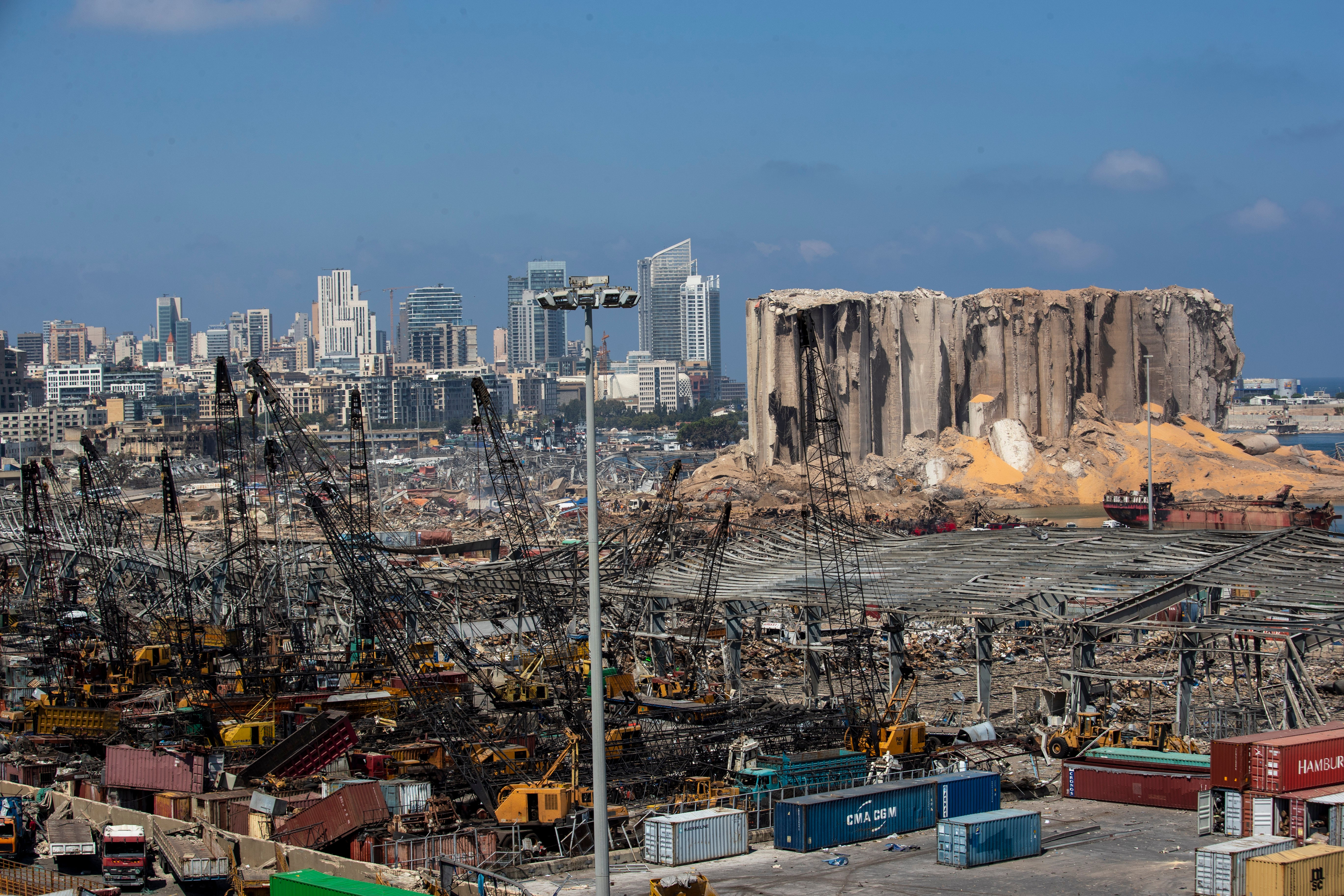German firm to remove dangerous material from Beirut port
Germany’s ambassador to Lebanon says a German company is ready to remove and ship abroad dozens of containers of hazardous material stored at Beirut’s port

Your support helps us to tell the story
From reproductive rights to climate change to Big Tech, The Independent is on the ground when the story is developing. Whether it's investigating the financials of Elon Musk's pro-Trump PAC or producing our latest documentary, 'The A Word', which shines a light on the American women fighting for reproductive rights, we know how important it is to parse out the facts from the messaging.
At such a critical moment in US history, we need reporters on the ground. Your donation allows us to keep sending journalists to speak to both sides of the story.
The Independent is trusted by Americans across the entire political spectrum. And unlike many other quality news outlets, we choose not to lock Americans out of our reporting and analysis with paywalls. We believe quality journalism should be available to everyone, paid for by those who can afford it.
Your support makes all the difference.A German company is ready to remove hazardous materials stored in dozens of containers at Beirut’s port, Germany’s ambassador to Lebanon said Saturday, following efforts to secure the facility after the Aug. 4 explosion that devastated the port and much of the city.
Ambassador Andreas Kindl tweeted that the treatment at Beirut’s port for 52 containers of "hazardous and dangerous chemical material” has been completed. He added that the material is ready to be shipped to Germany
The decision to remove the material followed the Aug. 4 explosion that was triggered by nearly 3,000 tons of ammonium nitrates, a highly explosive fertilizer component, that had languished at the port for years. The blast killed 211 people, wounded more than 6,000, and destroyed parts of the capital.
In November, Lebanon signed a deal with Germany’s Combi Lift to treat and ship abroad the containers consisting of flammable chemicals. The deal is worth $3.6 million, toward which port authorities in Lebanon paid will pay $2 million with the German government covering the rest.
Kindl said the material that was treated had been a threat to people in Beirut
Since the August blast and a massive fire at the port weeks later, authorities have been concerned about dangerous material still at the facility. A month after the blast, the Lebanese army said military experts were called in for an inspection and found 4.35 tons of ammonium nitrate that were removed and destroyed.